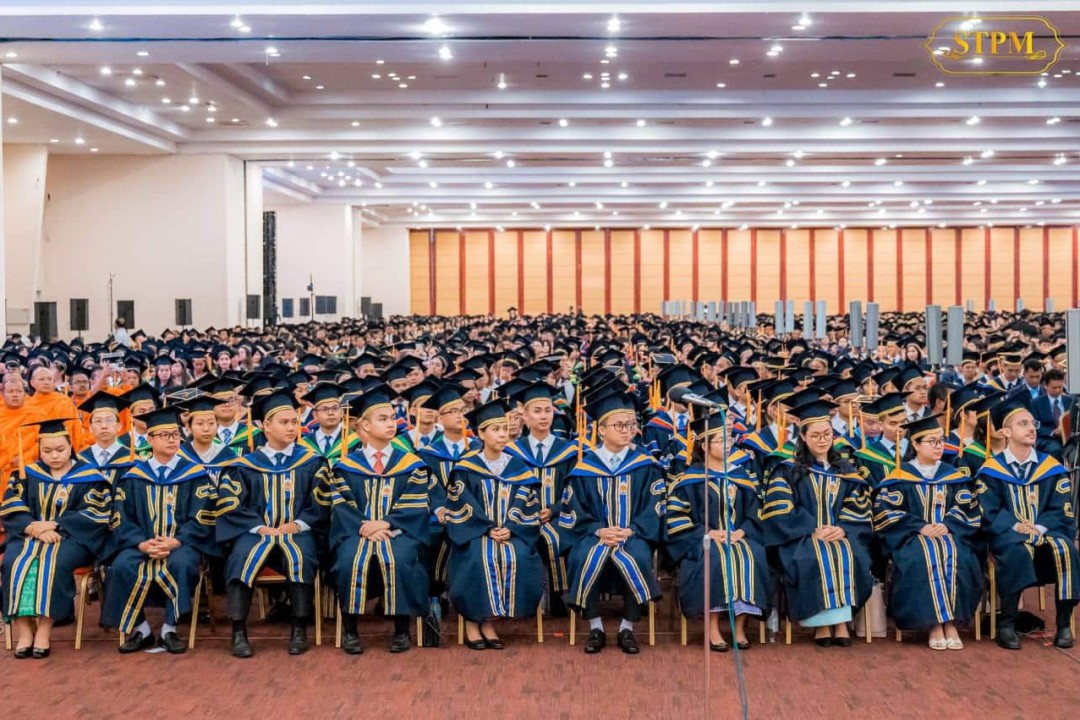World Bank Pledges $80 Million To Enhance STEM Education In Cambodia

The World Bank (WB) has approved USD 80 million in financing to support Cambodia in enhancing the quality of higher education, particularly in the fields of science, technology, engineering, and mathematics (STEM).
According to a statement from the WB, this funding aims to boost the quality of higher education for thousands of students in the Kingdom. The funding is provided by the International Development Association (IDA), the bank’s concessional lending arm for low-income countries.
This six-year initiative targets nine public higher education institutions in Cambodia, focusing on producing well-qualified graduates and fostering innovative research. It is expected to benefit an estimated 32,000 students, including approximately 13,000 women, who will receive enhanced educational opportunities through updated curricula, lecturer training, and digitised learning methods.
This initiative will focus on improving the quality of learning for female students and students with disabilities, and on supporting female faculty members. According to WB, it adopts climate-resilient infrastructure design standards and prioritises climate change-related research projects.
Tania Meyer, World Bank Country Manager for Cambodia, stated:
To complement investments in health and basic education, which are the foundations for a productive workforce, strengthening high-quality higher education and preparing a critical mass of highly skilled graduates will help Cambodia advance its human capital and promote inclusive growth and development.
According to the bank’s press release, this new project builds on the success of a previous initiative that provided improved learning opportunities for over 128,000 higher education students – more than half of whom were women – by establishing 67 academic programs, funding 53 research projects, and upgrading 147 laboratories.
In May 2024, the World Bank also approved USD 79.5 million in funding to enhance education quality and access in Cambodia, focusing on children from disadvantaged groups, poor families, or ethnic minority communities, including those in remote areas or living with disabilities, to ensure they receive quality learning opportunities.
Growing Focus On Developing STEM Education In Cambodia
_20240927_232053.jpg)
Recognising the importance of STEM, the Cambodian Ministry of Education, Youth and Sport (MoEYS), non-governmental organisations (NGOs), and the private sector have adopted various initiatives to promote STEM education in the last few years, at both the secondary and higher education levels.
Speaking to B2B Cambodia in July 2024, Casey Barnett, President of CamEd Business School in Phnom Penh, noted that one of the main developments he has observed in Cambodia's education industry is the growth of private education, resulting from the Cambodian government's openness to privately run educational institutions.
“Because of the openness of the Cambodian government to allow and encourage investment in private educational institutions and private schools, now we see private schools, in every small town and every small city, and this has really given parents a choice not to be limited only to the government run schools in their town or their neighborhood," said Barnett, adding that this also means more parents have access to affordable quality education that is often more specialised.
The growth of STEM-focused higher education in Cambodia include the emergence of newer institutions such as CamTech University, the Cambodia Academy of Digital Technology (CADT), Paragon International University, and more, alongside the long-established Institute of Technology of Cambodia (ITC).
The Cambodian government has also announced that tax relief for higher educational institutions will be extended for five years, until the end of 2028. Additionally, the Cambodian capital of Phnom Penh remains the second cheapest city across Asia for international school fees.
Cambodian Education Needs Further Improvement
The WB stated, “While access to higher education in Cambodia has gradually increased, enhancing the quality and relevance of education and research is crucial for meeting the evolving demands of the labour market.”
Barnett also mentioned that one aspect still missing in the public education sector in Cambodia is the performance evaluation of teachers.
“There needs to be significant, systematic evaluation of public school teachers. Teachers who are not effective need to be let go, while those who excel should receive incentives. I believe that a policy of replacing underperforming teachers with high-quality ones will create pressure for better performance, ultimately benefiting the whole country through improved education,” he said.
“If you have a good teacher, it doesn't really matter how [a school's] facilities are. Nothing else matters if you have a truly high-quality teacher to guide and develop skills in a student,” Barnett concluded.